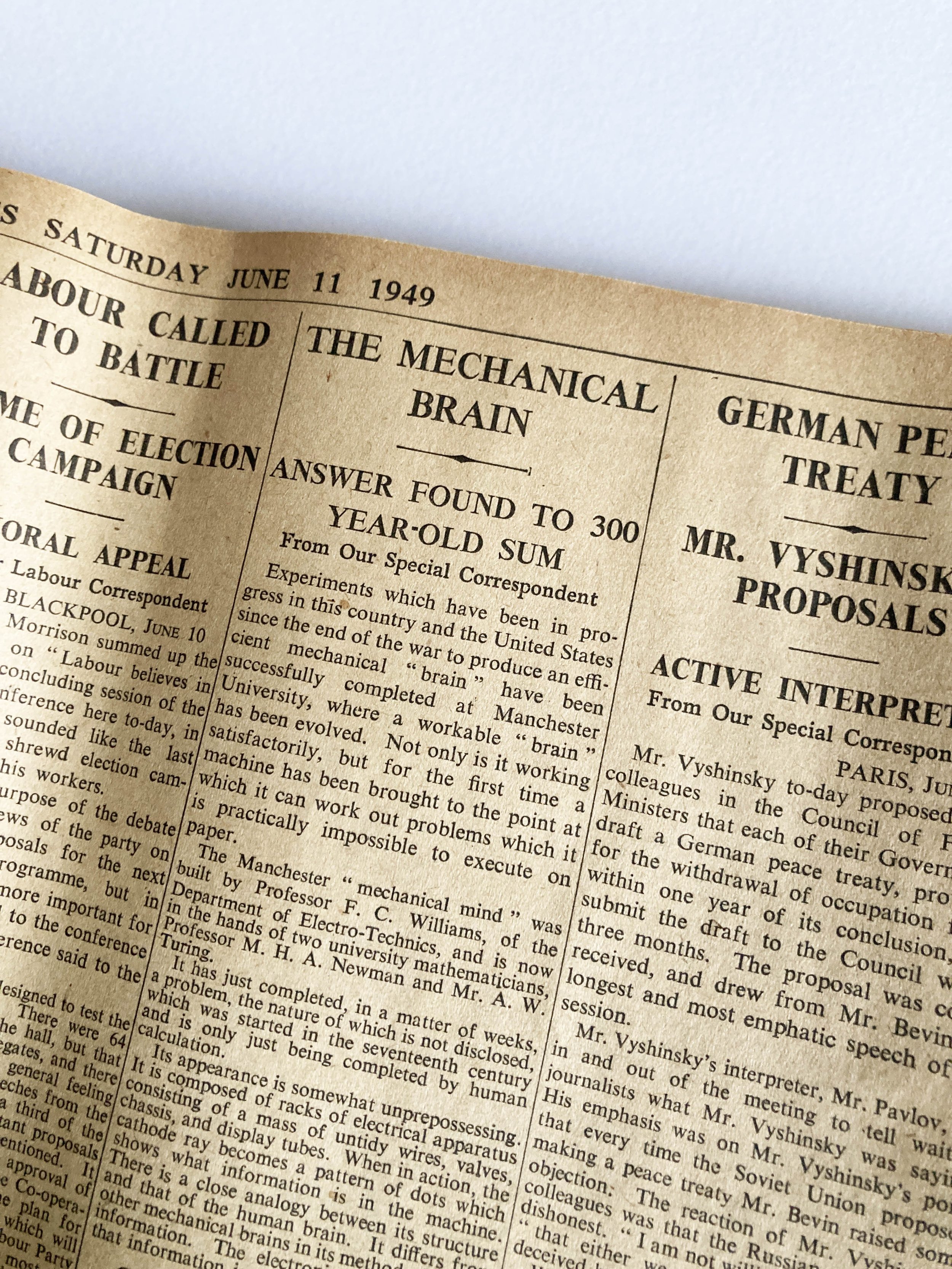TURING ON AI, 1949




TURING ON AI, 1949
TURING'S MOST DARING STATEMENT ON THE FUTURE OF COMPUTING AND ARTIFICIAL INTELLIGENCE
TURING, Alan Mathison (1912–1954)
Interview on the future of computing [in:] The Times, 11 June 1949
592 x 432mm, stored folded; 10pp.
"This is only a foretaste of what is to come and only the shadow of what is going to be."
This is one of Turing’s most famous quotes – used on the £50 note that bears his portrait. It comes from an interview given to the Times in June 1949 [offered here]. Ostensibly Turing was talking about the 'Manchester Baby' – the first operational stored program computer in the world. But he was really responding to questions provoked by the neurologist Sir Geoffrey Jefferson, who had given a nay-saying and well publicised talk about computing and intelligence just two days before. Turing’s comments were controversial: The Times carried a number of letters in future editions attempting to reign in Turing’s speculations, one of them from his Manchester colleague Max Newman!
Even in this small space Turing manages to say a lot: the idea that computer creations can only be appreciated by other computers remains quite startling – think of what might happen when LLMs get chatting with each other. Note that he is actually quite cautious when he says "fields normally covered by the human intellect". Computers can't do everything – but there's no reason why they can't reason.
Now we know that around this time Turing was thinking very seriously about forms of machine intelligence. This little snippet and the critical responses show just how hetereodox his views were.
The description of the computer (the Manchester 'Baby') is particularly pleasing:
"Its appearance is somewhat unpreposessing. It is composed of racks of electrical apparatus consisting of a mass of untidy wires, valves, chassis, and display tubes. When in action the cathode ray becomes a pattern of dots which shows what information is in the machine."
The piece discusses the solution of 'a problem, the nature of which is not disclosed, which was started in the seventeenth century', and also the composition of poetry. On this point Turing makes an intriguing remark:
"I do not think you can even draw the line about sonnets, though the comparison is perhaps a little bit unfair because a sonnet written by a machine will be better appreciated by another machine."
But it is Turing's comment about the future of computing that is most striking, in light of the paper on Artificial Intelligence that he was formulating around this time:
"We have to have some experience with the machine before we really know its capabilities. It may take years before we settle down to the new possibilities, but I do not see why it should not enter any one of the fields normally covered by human intellect, and eventually compete on equal terms."
The journalist, summarizing Turing, concluded with the following visionary insight:
"Turing added that [...] their research would be directed to finding the degree of intellectual activity of which a machine was capable, and to what extent it could think for itself."
The interview and article are on page 4 of a well-preserved copy of The Times, for 11 June 1949 (No. 51,405).
Very good condition: fragile and age-toned, with some very subtle archival-tape repairs to the spine and central fold (but barely noticeable and a great aid to handling). The Turing interview in excellent condition.

